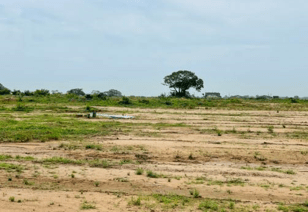In Ghana, buying land is more than just a financial transaction—it’s a step toward securing your future and building your dreams.
Yet, this exciting journey can quickly turn into a nightmare if you overlook critical details. Do you know who truly owns the land you’re eyeing? Have you considered the legal intricacies that could make or break your investment?
Understanding the difference between freehold rights that last forever and leasehold rights that expire after a set term could save you from costly regrets. Before you commit, are you prepared to navigate the complexities of land ownership with care and precision?
Understand land ownership
When buying land in Ghana, the first step is to confirm that the seller has legitimate ownership of the property. Ownership rights in Ghana can be classified as freehold, where the owner has perpetual rights, or leasehold, which grants ownership for a specific period—typically 50 or 99 years. For example, if a seller claims to hold a 50-year lease, their documentation should reflect this term. The upcoming Land Act also places restrictions on family land transactions, preventing freehold transfers and aligning them with leasehold agreements similar to stool lands.
Types of land
Individual/family lands
These lands are often privately owned and may have fewer constitutional restrictions on leasehold terms. However, with changes in the law, acquiring family land as a freehold may no longer be possible.
State lands
State lands, managed by the Lands Commission, are owned by the government. To purchase state land, buyers must work directly with the Lands Commission or through authorized entities like the Tema Development Corporation (TDC) or State Housing Company Limited. All state land purchases must also be registered with the Lands Commission. For any land purchase, ensure the documentation reflects the correct ownership rights and that you understand any restrictions on the property.
Conducting due diligence
Due diligence is essential in verifying the legitimacy of the land you’re buying. Start with a search at the Lands Commission to uncover the history of the property. This search will confirm whether the seller’s claims match the records. If no official records exist, further investigation is necessary. You can:
- Talk to neighbors to learn about the property’s history.
- Check with local authorities, such as the district assembly, to identify who pays property rates.
- Contact utility companies like ECG or Ghana Water Company to verify bill payments and ownership.
Assessing the neighborhood
The land’s location and surroundings play a significant role in its value and suitability. Consider:
- Is the area prone to flooding or earthquakes?
- Are there potential hazards like landslides or nearby industries emitting harmful chemicals?
- Does the neighborhood provide access to essential amenities such as potable water, electricity, and security?
If the land is for residential purposes, ensure it meets your lifestyle and safety needs.
Determining property value
Before putting money on the table, it’s wise to assess the land’s market value. Hire a qualified valuer to provide an accurate estimate, which can guide your negotiations. Understanding the true value ensures you’re making an informed investment and prevents overpayment.
State consent
When buying state land, confirm that the seller has obtained consent from the state. This is typically a letter from the Lands Commission or the TDC, granting approval for the property’s transfer. Without this consent, the property cannot be registered, limiting its financial utility, such as securing a mortgage.
Securing financial value
The land you purchase should serve more than one purpose. Beyond using it as a home, consider its future financial potential. A well-documented and properly registered property can serve as collateral for loans or be sold at a higher value in the future. This underscores the importance of ensuring the transaction is legally sound and transparent.
Avoiding fraudulent transactions
Fraud in land transactions is common, so vigilance is key. Follow these tips:
- Engage professionals such as lawyers, surveyors, and valuers to verify all documentation.
- Avoid rushing into deals, especially those that seem too good to be true.
- Ensure every step of the process is thoroughly reviewed to avoid costly mistakes.
Conclusion
Buying land in Ghana requires more than just money—it demands due diligence and careful planning. From verifying ownership to assessing the neighborhood and property value, every detail matters. Always seek professional guidance and avoid rushing into transactions. By following these steps, you’ll not only secure your investment but also pave the way for future financial opportunities. When it comes to land purchases, remember: it’s better to proceed with caution than to rush and regret.
Source: Housing In Ghana Magazine
Housing in Ghana magazine is a publication under the Housing in Ghana Foundation, an organization that is committed to promoting and facilitating access to quality housing solutions across Ghana. The bi-annual magazine publication serves as a comprehensive guide for individuals, families investors as well as other key industry players seeking information on real estate trends and news, property listings and investment opportunities within the country. Email: [email protected] 0555444665 | 0599663344











